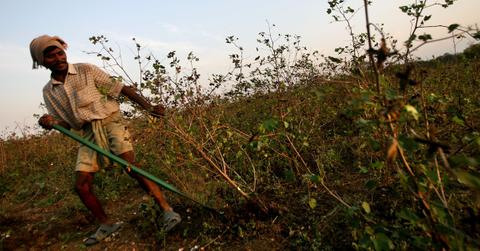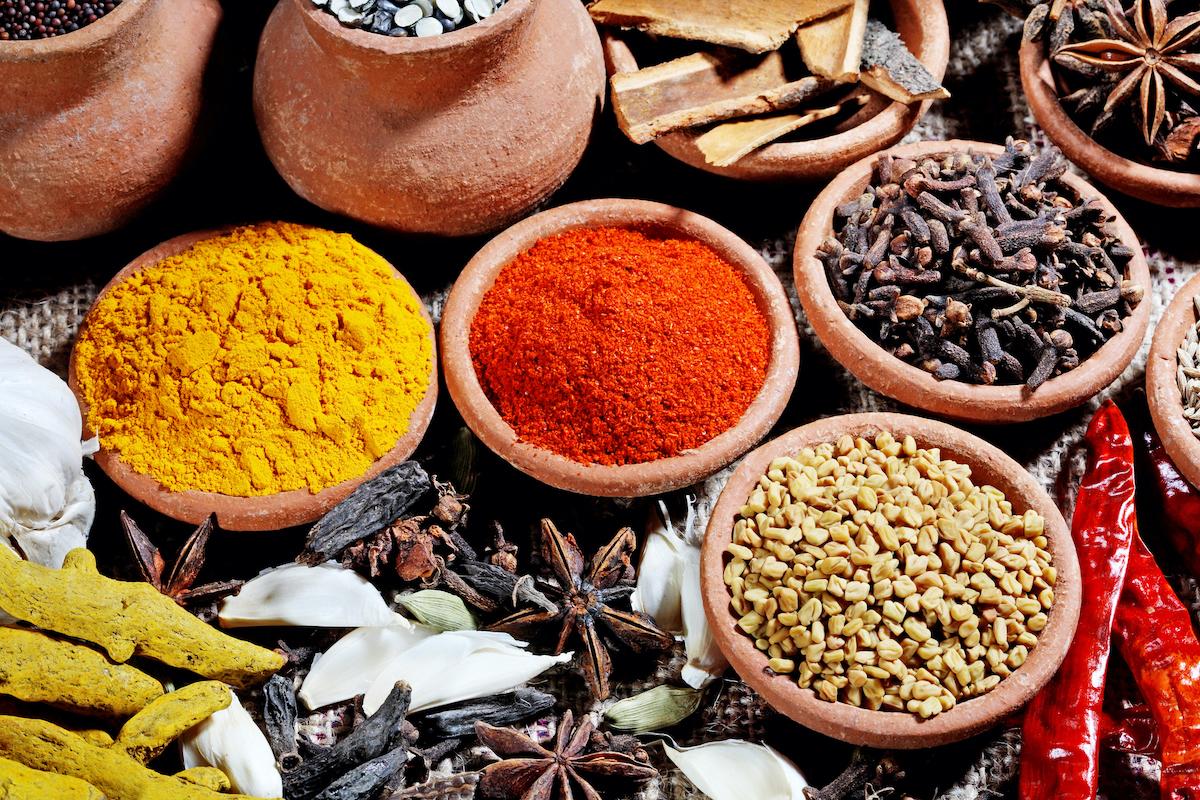Indian Farmers Lead 250 Million in Protests Against New Agricultural Laws
Farmers in India are currently protesting against unfair new agriculture laws.
Published Dec. 8 2020, 12:32 p.m. ET

Many of the wellness practices the Western world engages in — such as yoga, meditation, and Ayurveda — are deeply rooted in Indian and South Asian culture. Not only that, but the herbs commonly used for these practices, such as turmeric, ginger, and ashwagandha, are often imported from India, and farmers in India are currently protesting against unfair new agriculture laws.
Keep reading to learn about the new laws, how they are hurting farmers, the agricultural protests, and what you can do to help.

The Indian government has set controversial new agricultural laws.
As explained by NPR, the Indian government set three new agricultural laws in September 2020. Before these new laws were put in place, the government set price assurances for a variety of crops, meaning the farmers were guaranteed minimum profits for their work.
But now, these new laws ask farmers to sell directly to companies and sellers, meaning the farmers are no longer guaranteed the same minimum profits, and they have to fend for themselves when it comes to finding buyers.
Indian farmers are protesting every day.
For the past two weeks (as of Dec. 8, 2020), Indian crop farmers have led more than 250 million protestors in protesting new agricultural laws in the Indian capital city New Delhi, according to the Business & Human Rights Resource Centre. Many protesters have even been camping at the protest site every night and standing in protest every day, amid the ongoing coronavirus pandemic.
The farmers, who mostly come from the northern Indian states of Haryana and Punjab, are taking a stand against the new rules, all while striking from their work on farms. The protests are shutting down major highways, shops, markets, and more, as per The Guardian. The participants say they will not cease their protests until the government listens, as reported by Al Jazeera.
Why is India changing farming regulations?
The Indian government claims that deregulating the agricultural industry will free farmers from selling to government-controlled markets with set prices, and allow them to sell to private buyers, as reported by CBS News. Basically, the government is framing this move as one that could help Indian farmers make more money in the long run.
However, farmers disagree, with many fearing that without guaranteed sales and minimum prices from the government, they will lose money as well as governmental support in times of need. Additionally, farmers believe these laws are not actually in the best interest of the farmers, but in the best interest of corporations, as per CBS News.
"We're worried no one will buy our produce, and that we'll go into debt," Harinder Singh, general-secretary of a Punjabi farmers union, told NPR. "We want the government to repeal these laws." Singh has been sleeping on a truck at a protest camp in New Delhi, with many others who are participating in daily protests.
How do wellness practices relate to the farmer protests in India?
Holistic wellness educator and Ayurvedic alchemist Navi Gill, of the Instagram page Navi Gill Wellness & Ayurveda, wrote a post about these protests on Instagram, as she thought this issue was very important to bring to the attention of those who practice Ayurveda, meditation, pranayam, or yoga. The post has been reshared by several popular accounts.
As Gill explained, many wellness practitioners and businesses are completely unaware that the herbs they use (in addition to the practices themselves) mostly come from India, and therefore currently support the oppression of India’s farmers, without whom the West would not have access to herbs including ashwagandha, black pepper, brahmi, ginger, rose, tulsi, and turmeric, as well as ghee.
“The lack of acknowledgement and support from the wellness community for the Farmer protests happening in India right now has been deafening,” Gill wrote. “The wellness industry is not exempt from being complicit in harm just because you have good intentions … If 2020 has taught us anything it’s that you either contribute to the liberation or the oppression of people through your energy, the work you do and the way you do it.”
Here’s how you can support protesters.
To help get people involved, Gill created and shared a Farmer’s Protest Resource List, which contains resources for farmers who are protesting, organizations where people can donate (such as Khalsa Aid International), and educational resources. Gill adds that wellness practitioners must recognize “your responsibility to understand the role you play,” the first step of which is simply keeping up with the news about these farm protests.